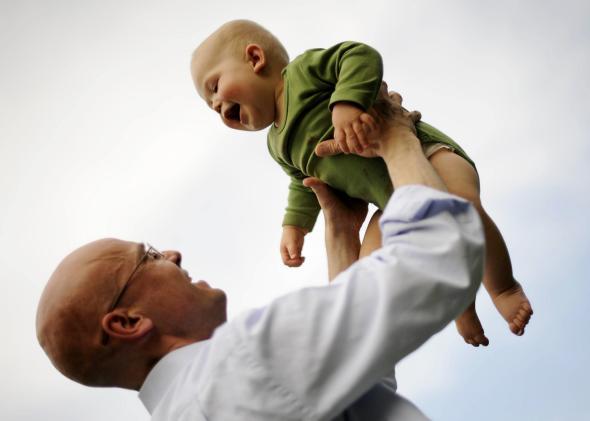Father’s Day is Sunday, which means that it’s time for pundits and politicians to scold the American public—with special ire reserved for black members of the American public—for our supposed indifference to the wonder and awe of fatherhood. Jessica Lahey has a piece in the Atlantic this week called “The Case for Dedicated Dads,” in which she argues, “Mothers are very important to their children’s development, of course, but research has shown that fathers help kids grow in specific ways.” Dozens of other writers are making the same argument, pegged to Father’s Day, for a variety of local and national media sources.
“Being around dads affects children’s biology, which in turn affects their mental states, like happiness, and their success in life,” wrote Mark Oppenheimer in the New York Times earlier this month. Sue Shellenbarger of the Wall Street Journal agrees, arguing, “The way dads tend to interact has long-term benefits for kids, independent of those linked to good mothering.” The Atlantic, in particular, loves reminding people, over and over, that, given a choice between Great Dad or No Dad, Great Dad is by far the better option. There was ”Why Dads Matter” on Feb. 23 (not to be confused with the new book Do Fathers Matter? Answer: Yes); “A Key to College Success: Involved Dads” on April 22; and “The Distinct, Positive Impact of a Good Dad” on June 14, 2013.
I love a good dad story as much as the next daughter, but I can’t help wonder: Who are these writers arguing against? W. Bradford Wilcox, who single-handedly generates a good half of the “having a good dad is great, don’t let anyone tell you otherwise!” content out there (including for Slate), intones, “Dads certainly seem dispensable in today’s world.”* Lahey also argues, “Recently, some authors have claimed that parents don’t really have much of an effect on educational success.” But none of the people Wilcox or Lahey cite are down on the idea of having good, loving fathers around the house. They are simply assuring people who don’t have access to one of those awesome dads that their kids are not doomed to failure.
Look, there is no “anti-fatherhood” movement in this country. Commentators who argue the “pro-fatherhood” side do so by pointing to the positive effects on kids from good dads who love their kids’ mothers and live in the same houses. (No one argues that crappy fathers are better than no fathers, or that high conflict marriages are better than divorce, because those are losing arguments.) These pieces often assume that women are rolling in offers for loving, devoted families and opting for single motherhood instead. But most single mothers aren’t in that situation because they are against the nuclear family or because they think fathers are bad for kids. Sometimes a dad is a good dad but not a good husband. Some dads are—gasp!—not good fathers at all and need to go. Preaching about how wonderful it is to have a loving, devoted father in the house is like going to the hospital and asking people if they ever considered not being sick.
Instead of repeatedly extolling the virtues of happy marriage and loving fathers, let’s invest in economic stability, education, and access to reproductive health care so that Americans can plan when they have children. These are the things people actually need to improve their chances of holding a family together. We know this because people who do have access to these things have more stable marriages. What we don’t need are more lectures about how having a good dad is better than having no dad. Rest assured, everyone already knows that.
Correction, June 12, 2014: This post originally misidentified W. Bradford Wilcox as Bradley Wilcox.
